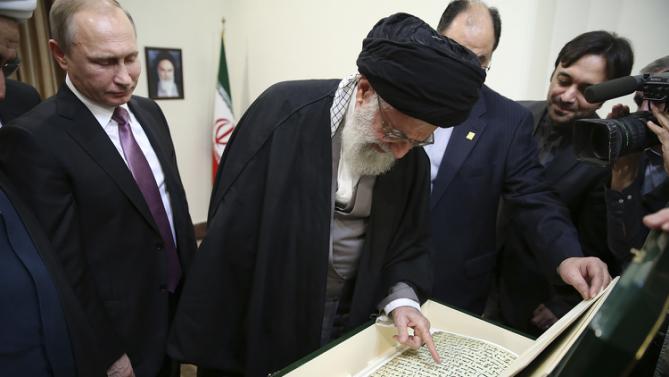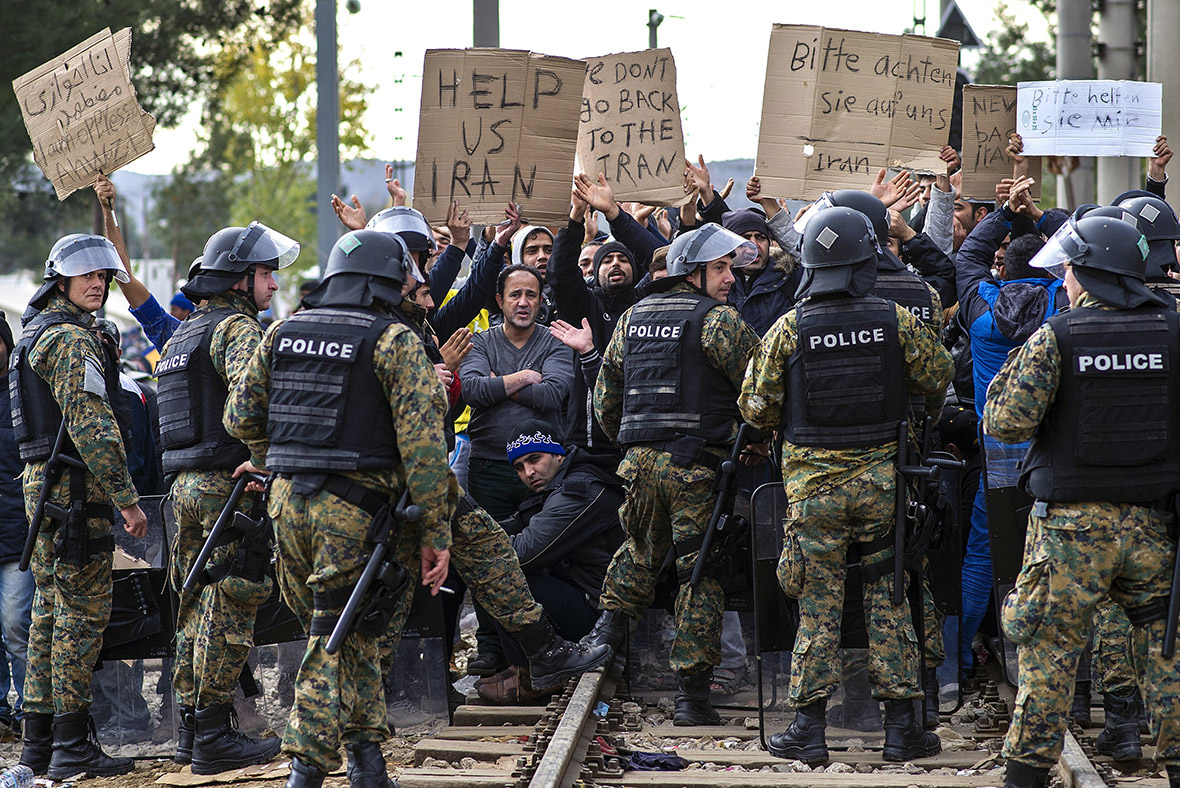November 27-2015

Supreme Leader Ali Khamenehi Monday proclaimed a veritable alliance with Russia against the United States.
In a face-to-face meeting with Russian President Vladimir Putin in Tehran, Khamenehi was effusive in his praise of Russian policies in general and Putin in particular. He was so effusive that some commented he was acting like a Russian lackey.
Khamenehi spoke at length about working with Russia against the United States, which he criticized as untrustworthy and accused of trying to seize the Middle East. He portrayed Russia as a veritable savior for Muslims facing the American threat.
The Supreme Leader praised the Russian president as a very outstanding personality in the contemporary world and appreciated his efforts to resolve the nuclear dispute.
The US long-term plan in the region is harmful for all nations, Khamenehi said, and Iran and Russia must exercise vigilance to thwart American conspiracies.
In a lengthy report on the meeting between the two men, the Islamic Republic News Agency (IRNA) said Khamenehi assured Putin that economic relations between Iran and Russia will now be promoted more than before. For the last 22 months, news reports in Russia and Iran have spoken of a pending landslide of trade, but nothing of note has transpired.
On political issues, ”We have no trust in the US Administration and vigilantly observe the actions of the US administration,” the Supreme Leader said. “The Americans try to isolate their rivals, but you have thwarted this policy.”
The actions Moscow has taken in Syria have brought much credit both to Russia and to Putin not only in the Middle East but also throughout the globe, the Supreme Leader said.
The US administration is seeking to dominate Syria and then to extend that domination over the entire region, which should be regarded as a serious threat for all nations but especially Russia and Iran, the Supreme Leader said.
What the Americans and their allies could not obtain through military intervention, they are now trying to achieve at the negotiating table, Khamenehi said.
In Washington, State Department spokesman Mark Toner dismissed Khamenehi’s comments about the United States as laughable rhetoric that ought not to be taken seriously. “It’s somewhat of a continuation of a pattern that we’ve seen from the Supreme Leader in terms of … over-the-top rhetoric about the United States and its intentions.”
Khamenehi gave unqualified support to Syrian President Bashar Al-Assad, saying he had assumed his post through a democratic election and the US has no right to ignore the votes of the Syrian people. The US is proposing another election to be run by the UN, unlike the 2014 election run by Assad that he won with 89 percent of the vote.
Khamenehi repeated his common refrain of recent weeks that Iran and the US will only hold talks on the nuclear issue and there is no room for talks on other issues—although Iran is now part of the ongoing talks on Syria. But Khamenehi said Iran under no circumstances will ever hold talks with the US on Syria or any other issues.
IRNA said Khamenehi would never change that policy, although the Islamic Republic has for decades said it would be happy to deal normally with the United States if the US changed its policy of hostility to Iran and its goal of world domination.
The state news agency carries reports on Khamenehi’s private meetings with foreign leaders that are given to it by Khamenehi’s office. It is never clear if these stories reflect what was actually said in the close-door meetings or if the stories simply represent a line that Khamenehi wants to convey to the Iranian public.
The stories on meetings with foreign leaders are normally fairly short, but this one was far longer than most stories IRNA runs on such face-to-face meetings.
Its tenor was startling because it could be seen as Khamenehi showing near-subservience to Moscow. The meeting lasted almost two hours, which is unusually long for a Khamenehi meeting with a foreign leader. Furthermore, Khamenehi only rarely meets with non-Muslim leaders.
Putin signed a decree that was issued Monday and authorizes Russia to modify two cascades at the Fordo enrichment plant and to send Iran raw uranium in exchange for taking enriched Iranian uranium. Both actions are in keeping with the recent nuclear agreement between Iran and the Big Six.























